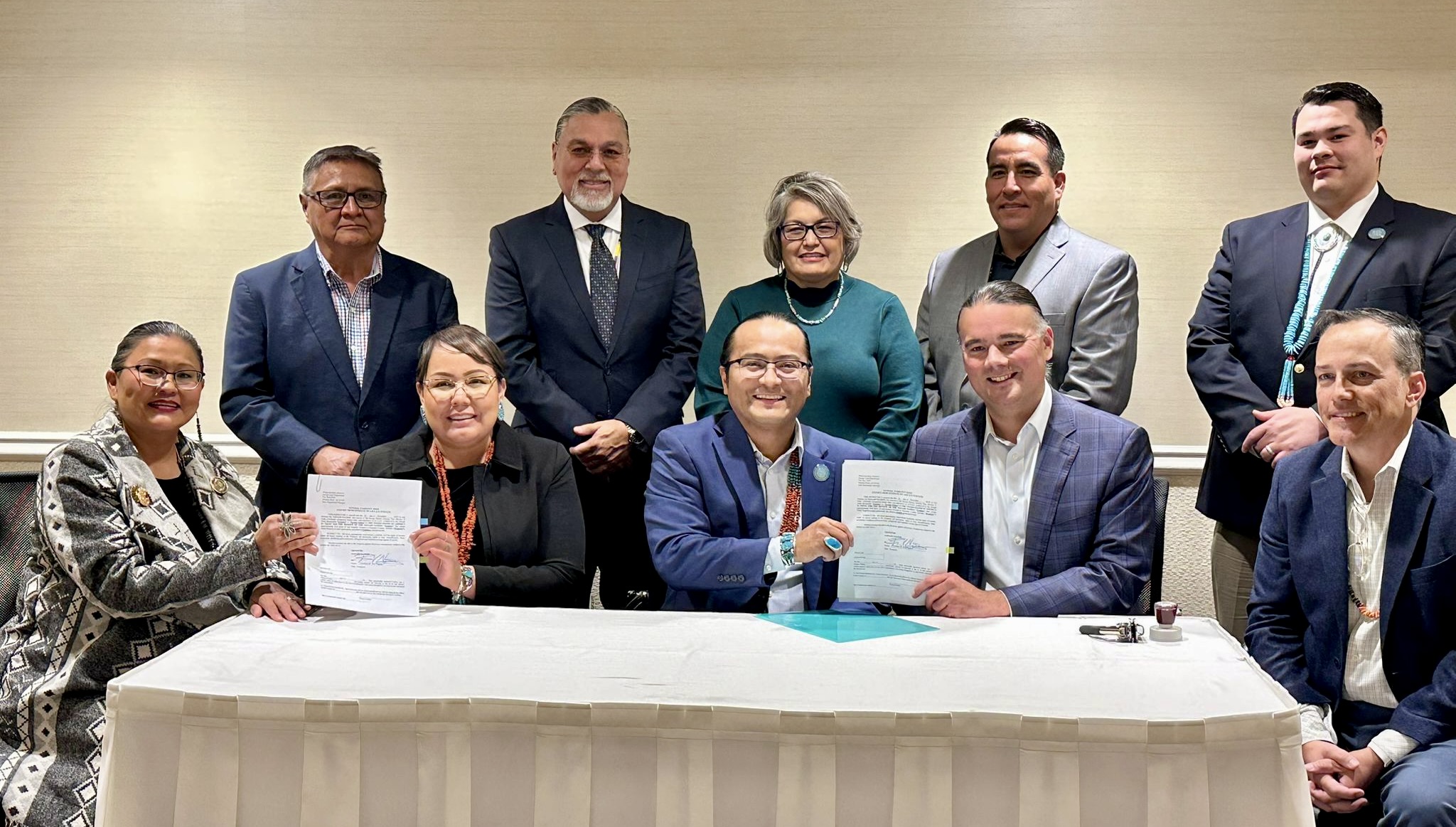
- Details
- By Native News Online Staff
For the first time since 2016, Navajo Nation President Buu Nygren signed a warranty deed today to place land into trust along U.S. Highway 89 near Flagstaff.
“The Navajo Nation appreciates the BIA's efforts to work with us to get this application approved,” the President said at a signing ceremony here. “These lands that are taken into trust for the Navajo Nation are part of the federal government's obligations to provide support for Navajos in Arizona who were forcibly relocated by the federal government through the 1974 Settlement Act.”
The last time the Navajo Nation acquired land through the fee-to-trust process was in September 2016, when 85.68 acres in Tse Bonito, New Mexico, were placed into trust.
President Nygren also announced plans to collaborate with the Navajo Nation Gaming Enterprise (NNGE) to develop a gaming facility on the newly acquired land. The project is expected to generate significant economic benefits and create around 100 new jobs.
“NNGE's employees are 85% Navajo and 5% other tribal members,” President Nygren said. “Rents collected by the Navajo Nation through leasing to NNGE will go directly to the Diné Relocatee Fund to support relocated Navajos under the Settlement Act.”
President Nygren was joined at the signing ceremony by Assistant Secretary of Indian Affairs Bryan Newland (Bay Mills Indian Community), BIA Director Bryan Mercier, BIA Navajo Regional Director Deborah Shirley, Navajo Nation Council Speaker Crystalyne Curley, Delegates Nathan Notah and Eugenia Charles-Newton, and Navajo Nation Washington Office Executive Director Justin Ahasteen.
Other attendees included BIA Deputy Director Bart Stevens, BIA Director Bryan Mercier, and BIA Staff Assistant Dan Galvan.
Assistant Secretary Newland and other federal officials reaffirmed their commitment to supporting the Navajo Nation in improving economic opportunities and honoring the federal trust responsibility.
More Stories Like This
Chickasaw Lighthorse Police Officer named Indian Country Law Enforcement Officer of the YearIndian Gaming Association Rallies Broad Coalition Against Sports Event Contracts It Calls Illegal Threat to Tribal Sovereignty
Navajo Resources and Development Committee Issues Notice on Livestock Inspection Requirements
American Prairie, Tribal Coalition Files Protest Over Rescinded Grazing Rights
Northern Cheyenne Push Back Against Trump Administration’s Effort to Alter Little Bighorn History
Help us defend tribal sovereignty.
At Native News Online, our mission is rooted in telling the stories that strengthen sovereignty and uplift Indigenous voices — not just at year’s end, but every single day.
Because of your generosity last year, we were able to keep our reporters on the ground in tribal communities, at national gatherings and in the halls of Congress — covering the issues that matter most to Indian Country: sovereignty, culture, education, health and economic opportunity.
That support sustained us through a tough year in 2025. Now, as we look to the year ahead, we need your help right now to ensure warrior journalism remains strong — reporting that defends tribal sovereignty, amplifies Native truth, and holds power accountable.
 The stakes couldn't be higher. Your support keeps Native voices heard, Native stories told and Native sovereignty defended.
The stakes couldn't be higher. Your support keeps Native voices heard, Native stories told and Native sovereignty defended.
Stand with Warrior Journalism today.
Levi Rickert (Potawatomi), Editor & Publisher


